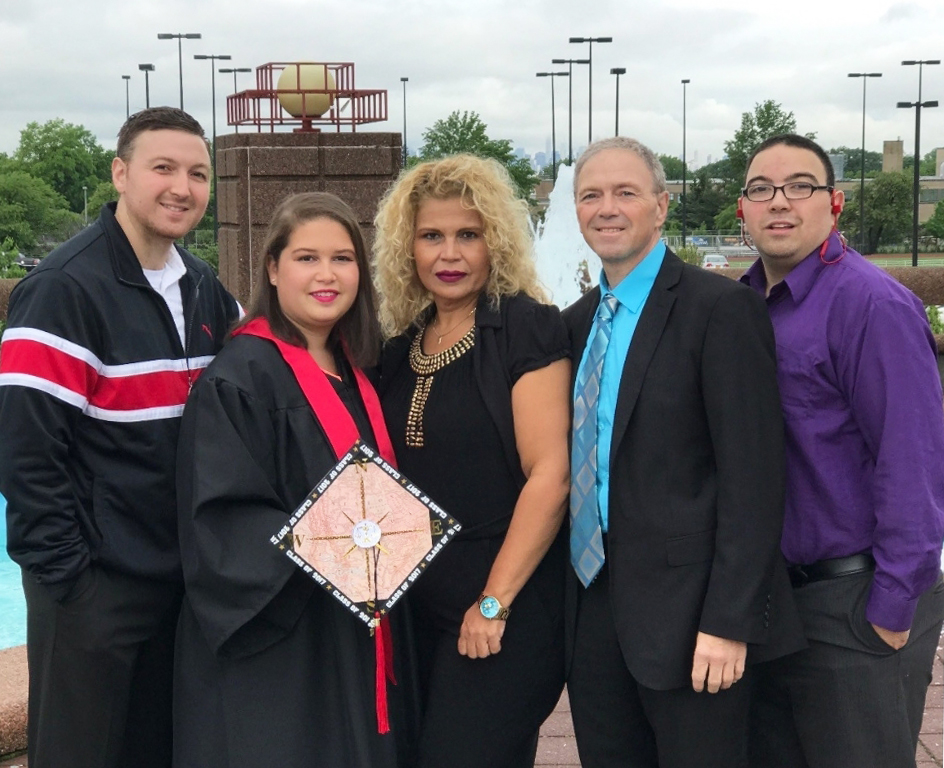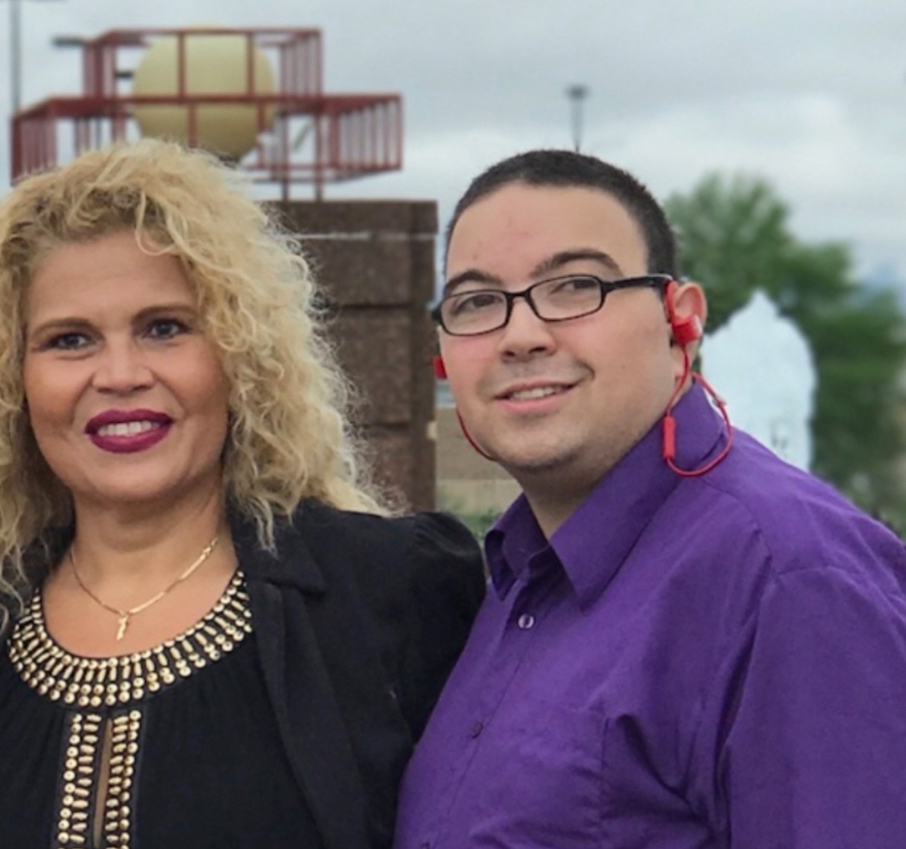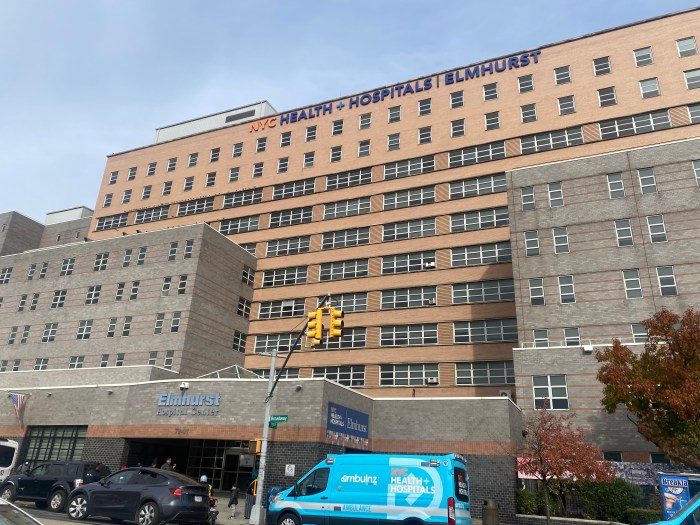Fred D’Amico, a 30-year-old man diagnosed with Asperger’s, died of COVID-19 in March of last year. His family, who lives in Glendale, pleaded with the hospital to let at least one of them stay with him — but were denied access due to pandemic restrictions.
Now, the family is advocating so that no other family has to experience the same heartache.
“I wake up every hour with this pain in my chest,” Maria D’Amico, Fred’s mother, told QNS in Spanish. “I’m opening my heart so that people do not have to go through what I am. Nobody is going to bring my son back.”
On March 27, Maria took Fred to Good Samaritan Hospital in Long Island with a fever. Maria, who held Fred by his arm, said she was immediately told to leave by hospital staff and were given a business card to call for updates.
Although the family left a cellphone with Fred, they were devastated, knowing their son wouldn’t be able to discuss healthcare options with his providers. In the following days, they would stay in the hospital’s parking lot, praying for their son’s recovery.
“I needed to be there because I am his voice,” Maria said, adding that although they called the hospital repeatedly, they rarely got through to someone.
The following day, they were able to speak with someone about Fred, and were told he had been intubated. The family, panicking, called the hospital more often for updates, but were told by hospital staff that they needed to call less often.
On March 31, Maria received a call from the hospital at 3 a.m. informing her that there was nothing else they could do for Fred, and that he would be disconnected from the machines keeping him alive. They were then asked to make arrangements to pick up his body from the hospital.
When they asked what caused his death, Maria said they were given little detail but were told it was ultimately kidney failure. His official documentation, though, noted he died of COVID-19.
Maria said she wasn’t given the option to see him and say goodbye in person nor through a video call. They were only able to speak with Fred through the cellphone he had with him that first day he was admitted to the hospital, but didn’t hear back from him again as he “didn’t know how to use it.”
The family, who have lived in Glendale for 16 years, believe they could’ve at least given Fred some comfort had they been allowed to stay with him during his hospitalization. It was the first time he’d been without Maria or his sister, his primary caregivers.
“Many people think that people with autism don’t have emotions, but they are very affected by their surroundings and by sudden changes,” Maria said. “My son never went anywhere without me or my daughter. I know that being left alone, and surrounded by machines was terrifying for him. I know he would have wanted me there to say goodbye. I believe that is part of why he died.”

A spokesperson of Good Samaritan Hospital said they followed guidelines set forth by the New York State Department of Health and the Center for Disease Control for the safety of patients, families and staff.
At the time Fred was hospitalized, COVID-19 guidelines prevented visitation to all hospitals.
“The COVID pandemic created worldwide issues, but we rose to the challenge and developed new ways to enhance our service,” the spokesperson said. “There were exceptions to allow visitation in certain circumstances, including end-of-life situations, which precluded visitors who were COVID positive.”
The spokesperson also indicated that their records show they had numerous conversation with Fred’s mother, and attempts were made to contact his father, but his voicemail was full. They added that his sister was permitted to visit the hospital through the end-of-life exception.
The D’Amico family said his sister was allowed a visitation when Fred was already pronounced dead.
In line with the most recent CDC guidelines, the Good Samaritan Hospital, a nonprofit hospital and a member of Catholic Health Services of Long Island, has suspended all visitations as of December. Exceptions for a support person to accompany a patient are made on a case-by-case basis, including for individuals with special needs.
Last summer, the federal government was investigating hospital visitation rights for disabled COVID-19 patients in states like Connecticut, Pennsylvania and Alabama, after disability advocate groups made complaints about support people being banned from the facilities, according to an NPR report.
In New York, Gov. Andrew Cuomo passed the Emergency Disaster Treatment Protection Act that protects hospitals and other care facilities from potential liability that would arise from alleged decisions related to the care of individuals with COVID-19, from the initial emergency declaration on March 7, 2020, through its expiration.
But the D’Amico family is not looking to pursue any legal action against the hospital.
“This is not about getting justice for me, but honoring my son, and making sure that this does not happen again to anyone else,” said Maria. “We just had to go through Christmas without our son, and I do not want that experience for anyone else.”
Connie Altamirano, a community activist who helped pass the Child Victims Act in the state Legislature, is representing the family after hearing their story.
“Denying access to families like the D’Amicos has nothing to do with keeping people safe, because you are actually sacrificing the right of people with disabilities to receive the care that they need,” Altamirano said.
Altamirano noted that pregnant women were allowed an emotional support person after advocating for the rule change several months ago.
“People with disabilities also need a support person as a medical necessity,” Altamirano said. “We need to change the law to accommodate them as well.”
Queens Senator Joseph Addabbo Jr. has introduced a law that would do just that.
“While we understand the need to limit the number of people inside of the hospital during a pandemic, like the one we are currently facing, it is vitally important to ensure that patients with communication deficiencies are able to have someone they trust with them to report to medical staff the patient’s medical history and needs,” said Addabbo. “What happened to Fred, and others, should never happen again.”
The new bill (S1035), would prohibit hospitals from not allowing individuals with disabilities, who are unable to describe for themselves their medical condition, from having an essential support person accompany them for the duration of their hospitalization in response to a pandemic or state disaster emergency.
The term “disability” is defined as an individual having any condition or disorder that makes it difficult for an individual to communicate a medical condition or everyday needs, including but not limited to autism or cerebral palsy. An “essential support person” is defined as an individual who frequently accompanies and assists the individual with the disability.
Assemblywoman Stacey Pheffer Amato will be co-sponsoring the bill in the State Assembly.
Altamirano is encouraging families with similar experiences to contact her via email at conniealtamiranopressinquires@gmail.com or via phone at 347-777-0841.
“No mother should have to go through what Maria D’Amico has, and I am grateful to advocate on her family’s behalf. I appreciate Senator Addabbo’s leadership in moving quickly to introduce the bill,” said Altamirano. “I see no reason why it shouldn’t receive bipartisan support. It should be passed immediately, before the session ends. If anyone has reservations, they need to ask themselves: would you want happened to Fred D’Amico to happen to your child or loved one?”





































